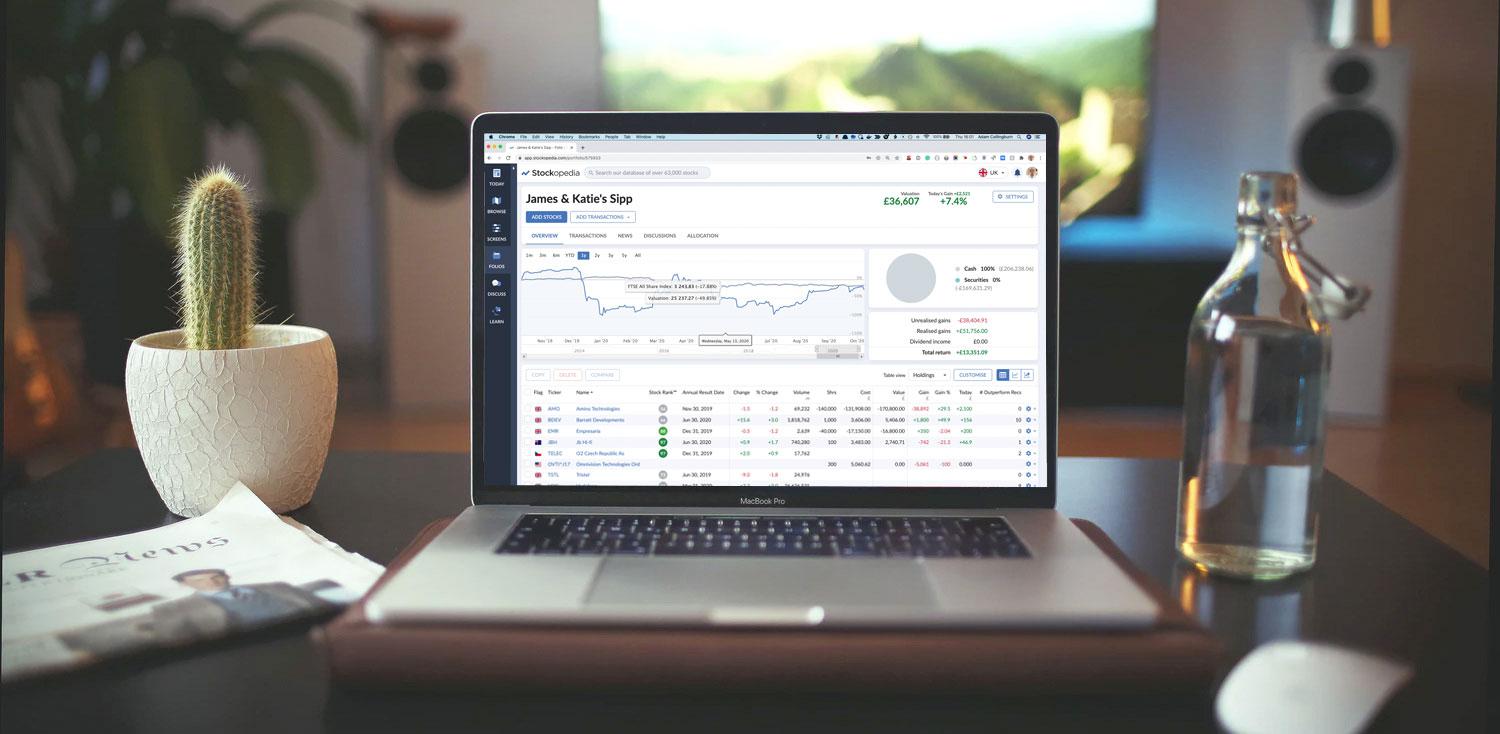David's Story

How did you pick investments before you used Stockopedia?
I bought my first shares in the 1980s as part of the company's Employee Share Purchase Plan. However, this resulted in me owning shares in just one company.
During the 1990s I would read the share tipping columns in several quality Sunday newspapers and this is what got me interested in the stock market. In the 1990s I opened a tax free PEP and I started to invest in shares but I found the share tips provided by the Sunday newspapers were rather 'hit and miss'.
During the 1990s I heard about and I subscribed to a monthly magazine called Investing For Growth (IFG) which was produced by Jim Slater. The IFG magazine taught me how to search for high quality profitable companies which were undervalued, growing and which had momentum behind them. However, IFG stopped being printed after a few years and it was superseded by CompanyREFS which produced an online PDF data sheet for each company.
I subscribed to CompanyREFS until its demise in 2019. Following its demise, my research alerted me to Stockopedia and I found the layout of the data in its StockReports was similar to the layout of IFG and CompanyREFS which made it very easy for me to continue searching for GARP (Growth At a Reasonable Price) companies.
Has using Stockopedia changed your approach to investing?
Half the battle with owning shares is making money; the other half of the battle with owning shares is not losing money!!!
Investing For Growth taught me how to search for high quality profitable companies which were undervalued, growing and which had momentum behind them.
CompanyREFS gave me the data and provided me with the tools to continue searching for shares by using the GARP method. However, what I wasn't previously able to do was search for companies which were financially distressed and likely to go bust.
Where Stockopedia has changed my approach to investing is in the fact that it has provided me with the tools and the data to find badly indebted companies with unhealthy balance sheets. By avoiding the purchase of shares in financially distressed companies, it has enabled me to increase the returns of my portfolio.
It is one thing for a company to unexpectedly issue a profit warning and its share price drop 20% but it is another thing losing 100% of your money when a company goes bust.

David uses Stockopedia to find & avoid badly indebted companies with unhealthy balance sheets.
Has Stockopedia impacted your investment results or quality of life?
Being able to avoid distressed companies with poor balance sheets has improved my investment results. You only have to look back to the market crash of March 2020 as an example. I am not aware of any of the companies which I owned in my portfolio reporting losses, going bust or having to carry out a fund-raising exercise to prop up their balance sheets. This all helped me to sleep at night, knowing that the high quality companies in my portfolio would bounce back with time.
What's your advice for investors that are just starting out?
Only buy shares in companies which make a profit.
Don't buy shares in 'Story Stocks'.
Don't buy shares in 'Blue Sky' companies.
Don't buy shares in 'Jam Tomorrow' companies.
All of these types of companies promise to make a profit tomorrow but invariably never do, which often results in the companies going bust and investors losing 100% of their money before the company reaches financial sustainability.
What I find works best for me is: Buy high quality undervalued companies, which make a profit, which have a healthy balance sheet and which have momentum behind them.
Disclaimer - Testimonials are provided by third parties for informational purposes only and are not intended and should not be taken to be financial product advice.
A subscription to Stockopedia will be one of the best investments you'll ever make...
Here's what you'll get:
- Find stocks likely to perform with proven Quality, Value and Momentum ranks
- Analyse shares in minutes, not hours with an all-in-one research platform
- Develop a consistent strategy with daily guidance and educational webinars
- Track and improve your results with portfolio analysis tools
- Become a self-reliant investor, saving thousands in advisory fees
Stockopedia is the perfect solution for active investors looking for more discipline and better results